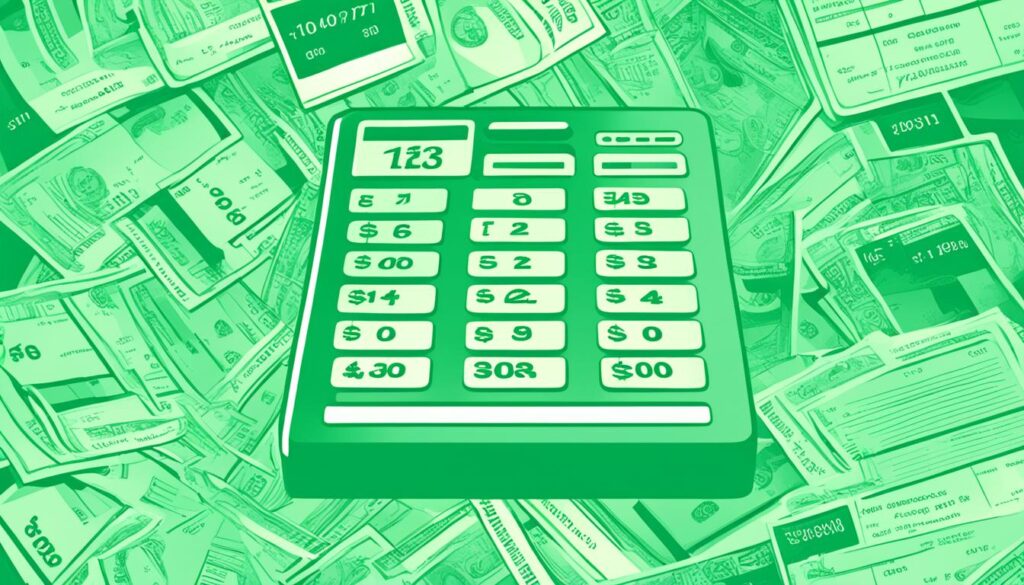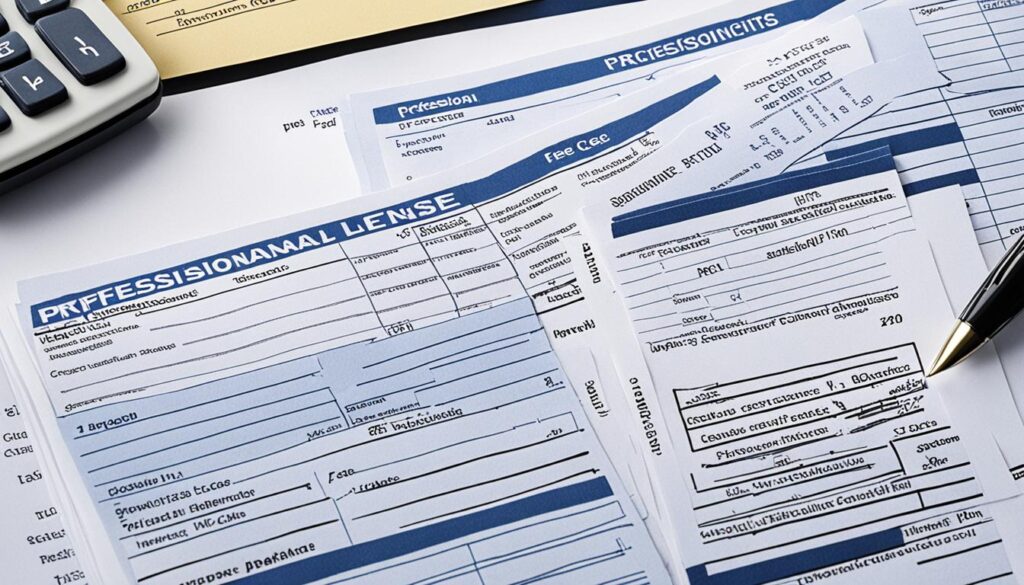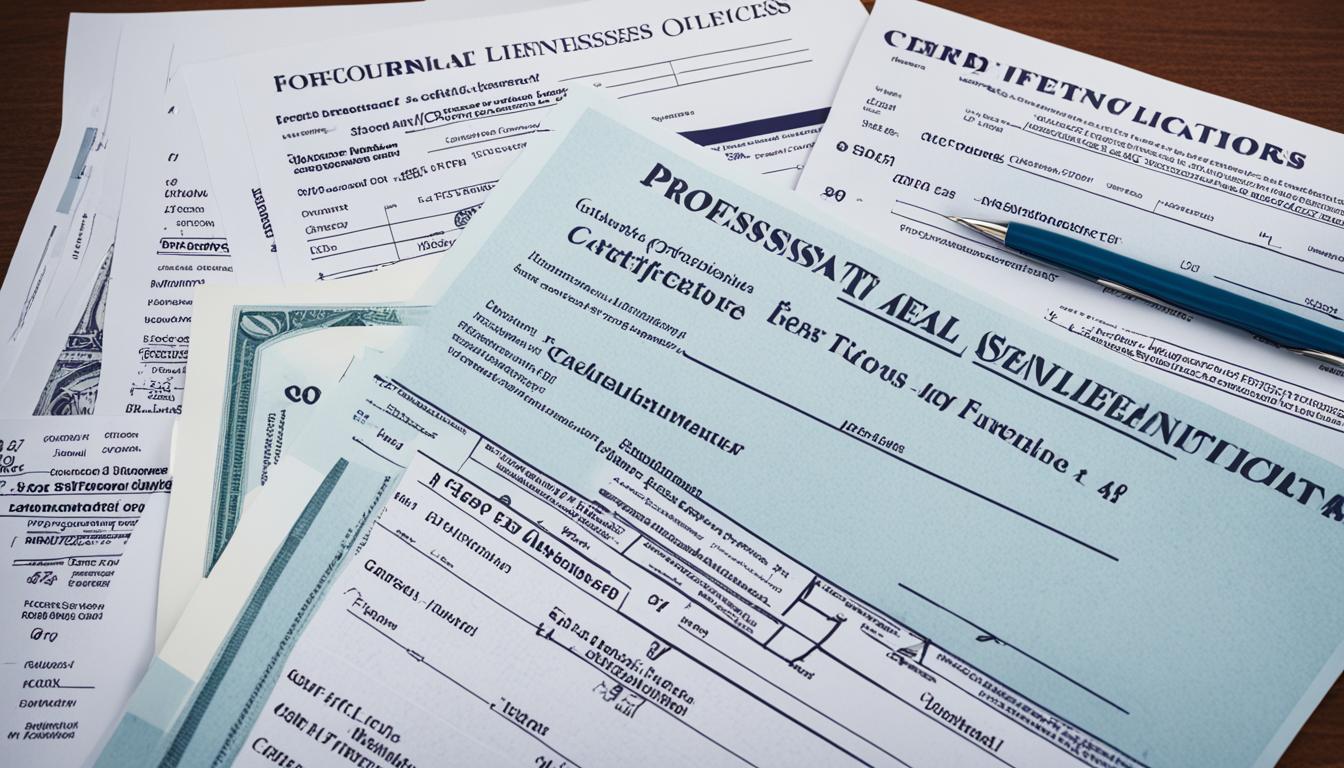Imagine this: you’re a self-employed graphic designer, constantly expanding your skillset to stay ahead of the competition. You’re always on the lookout for new design trends, attending workshops, and refining your techniques. One day, while browsing through an industry forum, you come across an advertisement for a specialized graphic design course that promises to take your skills to the next level. Excitedly, you enroll in the course, knowing that it will enhance your ability to serve your clients and generate more income.
Fast forward a few months, and you’ve successfully completed the program, proudly displaying your new certification. As you reflect on your journey, you wonder: could the expenses related to obtaining and maintaining this professional certification be tax deductible?
When it comes to professional license fees, the answer is not always straightforward. While some expenses may be eligible for tax deductions, it’s essential to navigate the complexities of the tax code to ensure compliance with IRS regulations.
Key Takeaways:
- Professional license fees may be tax deductible if they are ordinary and necessary for conducting a trade or business.
- Consult the IRS guidelines and the Federal/State Comparison Chart for Typical Business Expenses provided by the Franchise Tax Board for specific information on qualifying deductions.
- To maximize tax savings, accurately identify all eligible professional license fees and maintain proper records and evidence of the expenses claimed.
- Consider consulting a tax professional for guidance on optimizing deductions and ensuring compliance with tax laws.
- State-specific differences in tax treatment of professional license fees may exist, so review the Federal/State Comparison Chart for relevant information.
Understanding Tax Deductions for Professional License Fees
To qualify for tax deductions on professional license fees, it’s crucial to understand the criteria set by the IRS. For an expense to be eligible, it must be both ordinary and necessary for your trade or business.
Let’s break it down:
- Ordinary: An ordinary expense is something commonly accepted and expected in your industry. Think of it as an expense that other professionals in your field would also incur.
- Necessary: A necessary expense is one that is helpful and appropriate for your business. It should directly contribute to your ability to generate income and operate efficiently.
To claim deductions for professional license fees, you must maintain sufficient records and evidence. This is important to substantiate the expenses you are claiming. Keep invoices, receipts, and any other documentation that supports the payment and purpose of the fees.
It’s also essential to refer to the IRS guidelines and the Federal/State Comparison Chart provided by the FTB for specific information on qualifying deductions.
| Expenses | Eligibility |
|---|---|
| License fees directly related to your trade or business | Eligible |
| License fees for personal or non-business activities | Not eligible |
| Renewal fees for maintaining professional licenses | Eligible |
By understanding the qualifications for tax-deductible professional license fees and maintaining proper documentation, you can ensure compliance and potentially reduce your overall tax liability.
Maximizing Tax Savings with Professional License Fee Deductions
Are you looking to reduce your tax liability? By claiming tax deductions for professional license fees, you can potentially save significantly on your taxes. But how can you ensure you’re maximizing your savings? Let’s explore the key strategies and considerations to help you make the most of these deductions.
1. Identify Eligible Professional License Fees
The first step in maximizing your tax savings is to identify all the professional license fees that qualify for deductions. Professional license fees that are considered ordinary and necessary for your business may be eligible for tax deductions. Examples of such professions include doctors, lawyers, real estate agents, and more. Keep in mind that different professions may have specific requirements for licensure, so it’s crucial to determine which fees are potentially deductible for your industry.
2. Understand IRS Rules and Regulations
To ensure compliance and maximize your tax savings, it’s essential to be familiar with the IRS rules and regulations regarding professional license fee deductions. The IRS considers an expense to be deductible if it is both ordinary and necessary for your trade or business. “Ordinary” means that the expense is common and accepted in your industry, while “necessary” means that it is helpful and appropriate for your business operations.
Keeping accurate records and maintaining adequate evidence are crucial in substantiating your professional license fee deductions. These records may include invoices, receipts, canceled checks, or other documentation that supports the payment and purpose of the fees. By staying organized and maintaining proper documentation, you can confidently claim your deductions while ensuring compliance with IRS guidelines.
3. Consult with a Tax Professional
Maximizing your tax savings can be complex, especially when dealing with deductions for professional license fees. Consulting with a tax professional who specializes in small business deductions can provide valuable guidance tailored to your specific circumstances. A tax professional can help you analyze your business expenses, review your records, and identify any potential opportunities for optimizing deductions.
Moreover, a tax professional can keep you informed about any recent tax law changes that may impact your deductions. They can also provide expert advice on understanding how the expenses are treated by both the IRS and the FTB, ensuring compliance with tax laws and regulations.
Summary
Maximizing your tax savings through professional license fee deductions requires careful consideration and adherence to IRS rules and regulations. By identifying eligible professional license fees, understanding IRS guidelines, and consulting with a tax professional, you can optimize your deductions, reduce your tax liability, and keep more money in your pocket.
| Key Strategies for Maximizing Tax Savings | Benefits |
|---|---|
| Identify Eligible Professional License Fees | Ensure you claim all relevant deductions |
| Understand IRS Rules and Regulations | Comply with tax laws and regulations |
| Consult with a Tax Professional | Gain expert guidance and optimize deductions |
IRS Rules on Professional License Fee Deductions
When it comes to deducting professional license fees on your taxes, it’s crucial to understand the rules set forth by the IRS. By familiarizing yourself with these guidelines, you can ensure that your deductions are valid and maximize your tax savings.
According to the IRS, a business expense deduction is allowed if the fees are both ordinary and necessary. This means that the fees must be common and accepted in your trade or business, and they must also be helpful and appropriate. It’s important to distinguish between personal and business expenses to accurately allocate the professional license fees to your business.
To support the deductions claimed, it’s essential to maintain sufficient records and evidence. This includes invoices, receipts, canceled checks, or any other documentation that proves the payment and purpose of the fees. By keeping accurate records, you can provide the necessary documentation in case of an audit or review by the IRS.
To provide further clarity, let’s take a look at an example:
| Professional License Fee | Status |
|---|---|
| State Bar Association Membership Fee | Tax Deductible |
| Driver’s License Fee | Not Tax Deductible |
| National Association of Realtors Membership Fee | Tax Deductible |

This table illustrates some common professional license fees and their tax deductible status. As you can see, membership fees for professional associations related to your trade or business are typically tax deductible, while fees for personal licenses, such as a driver’s license, are not.
Remember, it’s always a good idea to consult with a tax professional to ensure that you are following the IRS rules and regulations correctly. They can provide personalized guidance based on your specific circumstances and help you optimize your deductions.
Determining Eligibility for Tax Deductible Professional License Fees
When it comes to determining if professional license fees are tax deductible, there are several factors that need to be taken into account. It’s not a simple yes or no answer, but rather a careful evaluation of your specific circumstances. To help you navigate this process, consider the following criteria:
- The nature of your business or trade: Is the license directly related to your trade or business? In general, expenses for licenses that are necessary for conducting your specific trade or business may be eligible for tax deductions. However, it’s essential to consult the IRS guidelines for specific qualifying criteria.
- The purpose of the license: Is the license required by law or necessary to maintain a professional status in your field? If the license is essential for carrying out your business activities or maintaining your professional capabilities, it increases the likelihood of being eligible for tax deductions.
- The relationship between the license and income generation: Can you demonstrate how the license directly contributes to the generation of income? If the license is directly related to the income-generating activities of your trade or business, it strengthens the case for tax deductions on the associated fees.
In summary, qualifying for tax deductible professional license fees depends on the nature of your business, the purpose of the license, and the relationship between the license and your income generation. Expenses related to acquiring, renewing, or maintaining a license that is directly related to your trade or business may be eligible for tax deductions. However, it’s crucial to consult the IRS guidelines and seek advice from a tax professional to ensure compliance with specific qualification criteria.
Documentation and Record-Keeping for Professional License Fee Deductions
Taxpayers claiming deductions for professional license fees must maintain appropriate documentation and records to substantiate the expenses. This includes invoices, receipts, canceled checks, or other evidence that proves the payment and purpose of the fees.
Additionally, taxpayers should keep records of the license or certification, including any renewal notices or confirmation of completion of continuing education requirements. Adequate record-keeping is essential to support the deductions claimed and to comply with IRS requirements.

| Documents/Records to Maintain | Description |
|---|---|
| Invoices | Provide evidence of payment made towards professional license fees. |
| Receipts | Offer proof of the fees paid and the purpose of the expenses. |
| Canceled Checks | Act as evidence of payment made towards professional license fees. |
| License or Certification documentation | Include original licenses and certifications, any renewal notices, or statements of completion of continuing education. |
By maintaining these records, taxpayers can provide the necessary documentation to substantiate their professional license fee deductions. It is crucial to organize and retain these records for a minimum of three years following the tax return filing date, as the IRS may request them for review.
State-Specific Differences in Deducting Professional License Fees
When it comes to deducting professional license fees on your taxes, it’s important to note that while the Franchise Tax Board (FTB) generally follows federal law on many business expenses, including professional license fees, there may be state-specific differences in how these fees are treated for tax deduction purposes.
To understand the specific treatment of professional license fees in your state, it is crucial to review the provided Federal/State Comparison Chart for Typical Business Expenses by the FTB. This chart will shed light on any divergences compared to federal regulations and give you insight into how your state approaches the deductibility of professional license fees.
For further clarity and guidance on state-specific differences and requirements, it is highly recommended to consult with a tax professional who is familiar with the tax laws in your state. They can provide personalized advice tailored to your situation, ensuring that you maximize your deductions while staying compliant with state regulations.

Understanding the state-specific nuances in deducting professional license fees can potentially help you optimize your tax savings. By staying informed and seeking expert advice, you can navigate the complexities of tax regulations and ensure you are taking full advantage of the deductions available to you.
Consulting a Tax Professional for Guidance on Professional License Fee Deductions
Deducting professional license fees on your taxes can be a complex process, especially considering the intricacies of tax laws and potential variations in state regulations. To navigate this maze of rules and ensure you maximize your tax savings, it is highly advisable to consult a tax professional for guidance on professional license fee deductions.
A tax professional can provide personalized advice tailored to your specific circumstances, taking into account your industry, business structure, and the nature of your license fees. By seeking their expertise, you can ensure compliance with IRS rules and regulations while maximizing the potential deductions available to you.
When consulting a tax professional, they can assist you in analyzing your business expenses and determining the eligibility of your professional license fees for deduction. They can also review your records to ensure proper documentation is in place, including invoices, receipts, and other evidence of payment and purpose. With their knowledge and experience, they can guide you through the intricate qualification criteria set by the IRS, preventing any missteps in your tax filing process.
Remember that professional license fee deductions can vary from state to state. By consulting a tax professional who is well-versed in state tax laws, you can gain insight into any state-specific differences and requirements that may impact your deductions. This expert advice will enable you to navigate potential pitfalls and reduce the risk of errors in your tax return, ultimately providing peace of mind during tax season.








